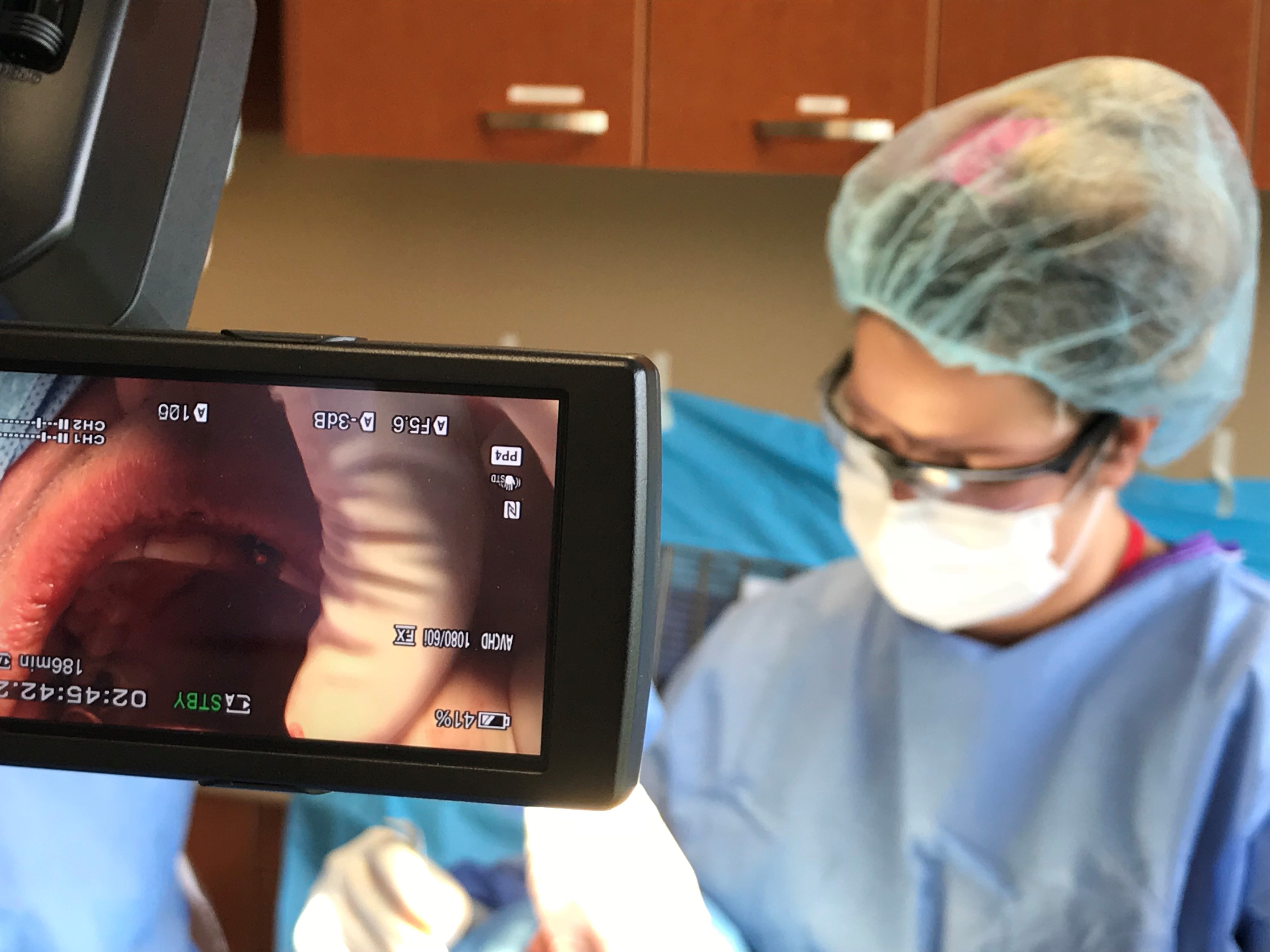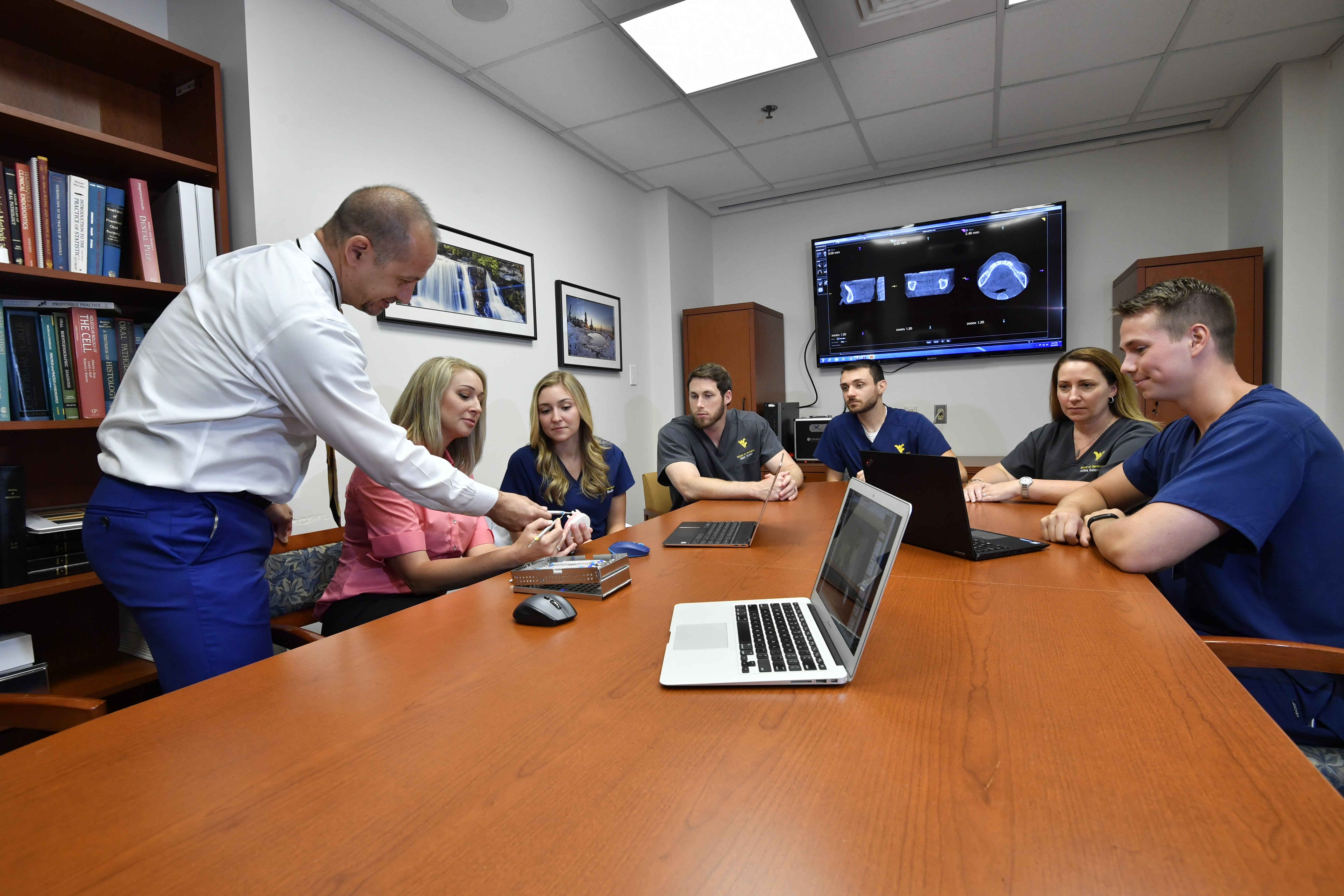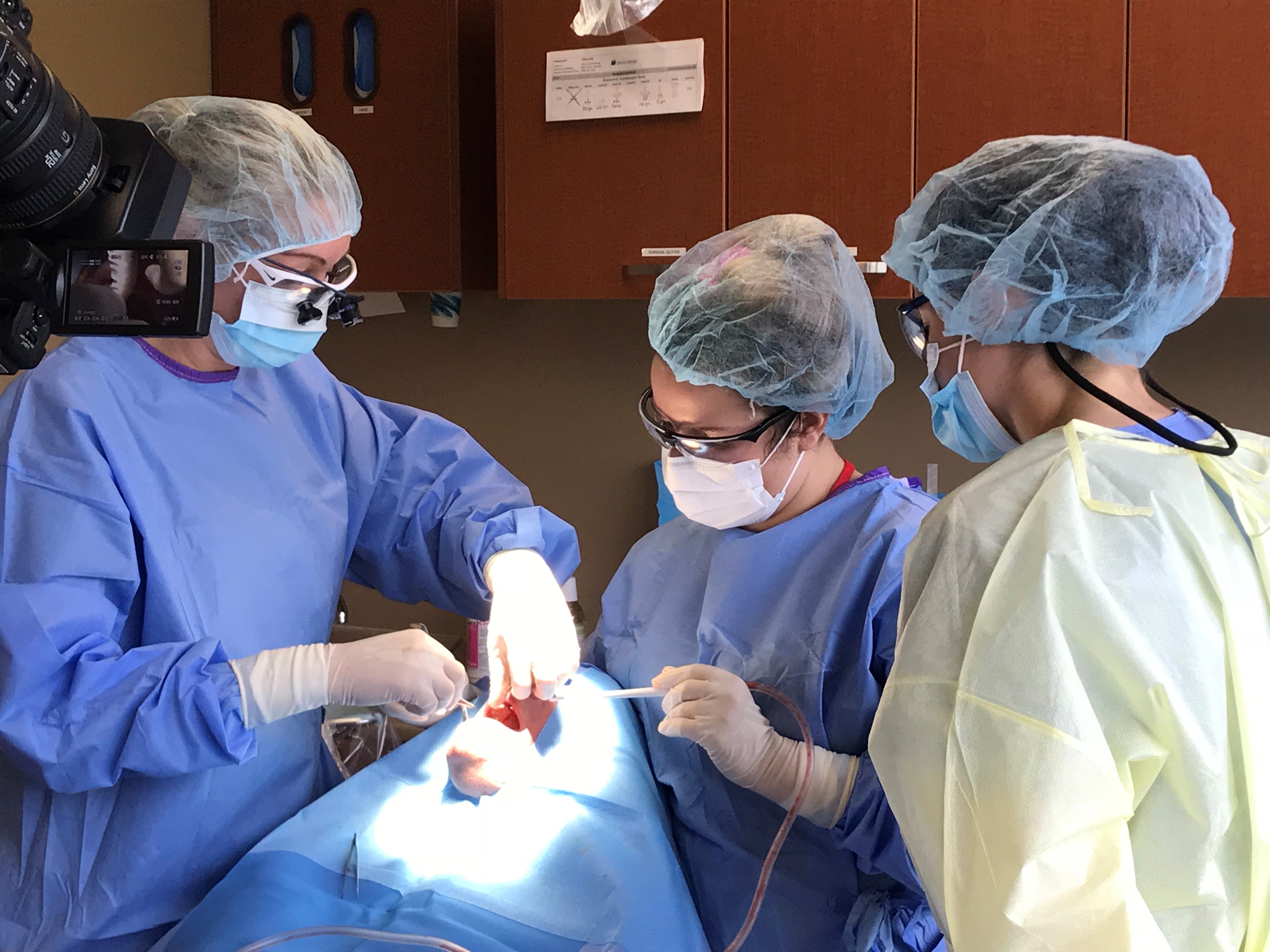

MORGANTOWN, W. Va.— A new post-graduate program at the West Virginia University School of Dentistry trains dentists to become specialists in preventing and treating gum disease and related conditions in the use of dental implants.
Dr. Gian Pietro Schincaglia will lead “Periodontology and Dental Implant Surgery,” a program designed for students to develop a better understanding of periodontal disease and the prevention and management of this condition that leads to tooth loss.

“The purpose of the program is to generate board certified periodontists to serve West Virginia’s population and to support general dentists in treating periodontal diseases and related conditions,” Schincaglia said. Our goals also include offering cutting edge technologies for the replacement of missing teeth with dental implants.”
The rate of severe tooth loss in West Virginia is 14 percent, almost seven times higher than the world rate of 2.5 percent. Eight percent of West Virginia residents have severe gum disease which means they are going to lose teeth quickly.
WATCH: WBOY TV Dentistry sees growth as a profession in north central W.Va.
Two of the factors that increase the severity of gum disease—diabetes and smoking—are also prevalent in the state.
The West Virginia Department of Health and Human Resources Division of Health Promotion and Chronic Disease reports more than one-in-seven adults in the state has diabetes, the second highest rate in the nation in 2015. A patient with diabetes, even undiagnosed diabetes, can have a severe periodontal disease as a sign of the underlying systemic condition.
The Truth Initiative, a non-profit public health organization fighting tobacco use, indicates 25.7 percent of adults in West Virginia smoke compared to 17.5 percent of adults who smoke nationwide.
“A patient who sees blood when brushing their teeth, sees teeth moving slowly, or notices the space between teeth growing is already showing the clinical signs of periodontitis,” Schincaglia explained. “Unfortunately, when teeth begin to move from gum disease, it’s almost too late for effective treatment.
The program is also implementing clinical research projects to develop innovative approaches for the treatment of periodontal diseases and dental implant related conditions.
The first students in the program began in July 2017. Schincaglia expects the first certified periodontology residents to graduate in 2020.

Patients can be referred by their dentist or come directly to the periodontal program to see a resident or faculty for treatment.


